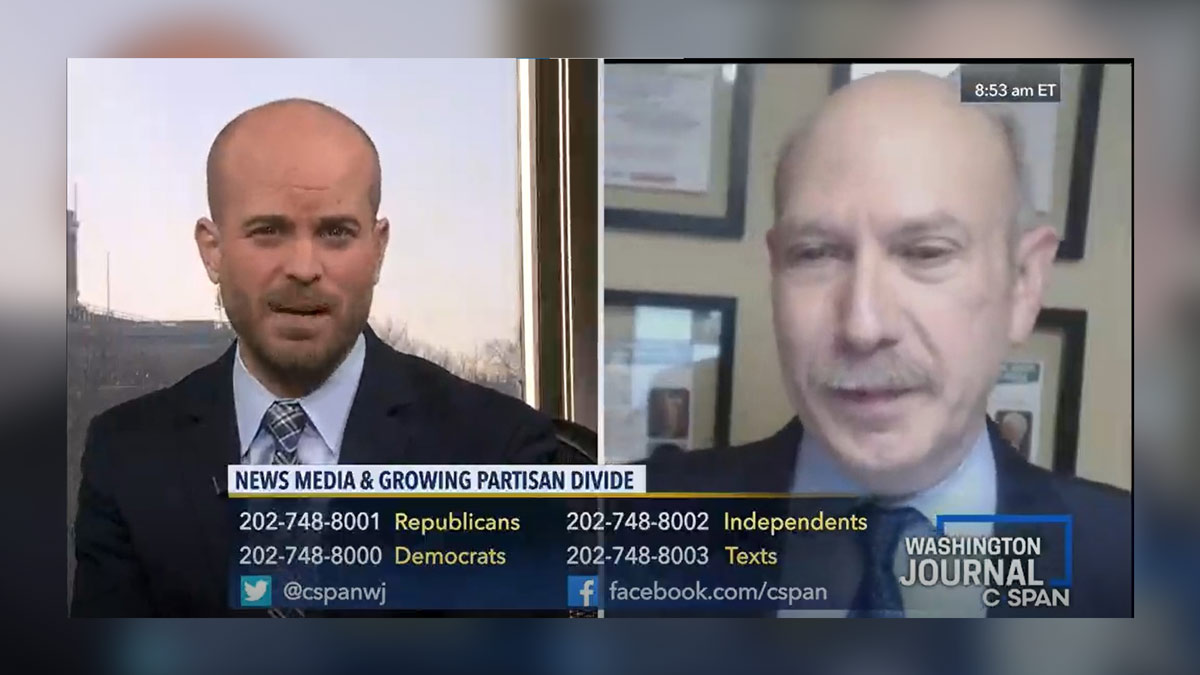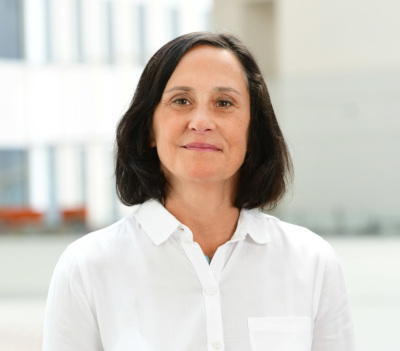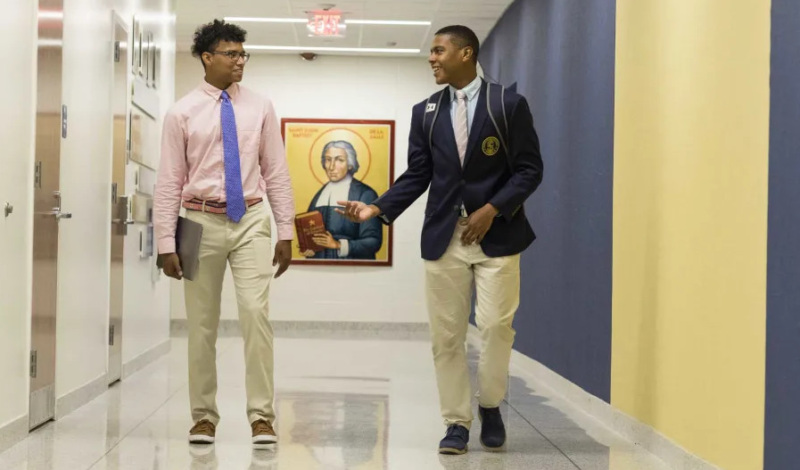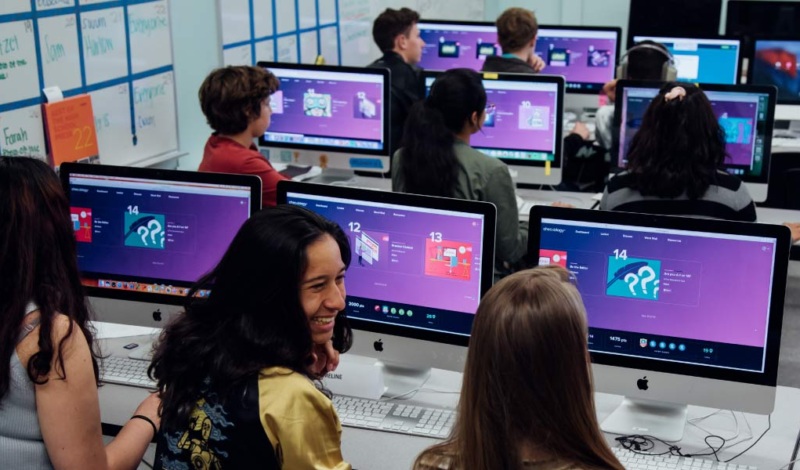
Miller discusses media, partisan divide on ‘Washington Journal’
On C-SPAN’s “Washington Journal” today, NLP founder and CEO Alan C. Miller called on the public, the nation’s education system and news media outlets to step up and help combat the virulent spread of misinformation threatening American democracy.
John McArdle, host of the call-in show, spoke with Miller about his recent commentary on how misinformation is creating “alternative realities” for some Americans.
“I think this is one of the great existential challenges of our times. It is a question of whether facts will continue to matter,” Miller said.
During the hour-long program, callers across the nation asked Miller a wide range of questions – from baseless claims of election fraud to instances of media bias. One caller decried the lack of civics education in our nation’s schools, Miller endorsed his view. “I completely agree about the need to bring back civics, to give the next generation a grounding in American government. At the core of that should be critical thinking skills to know how to sort fact and fiction and what information to trust and share,” Miller said. “Our democracy depends on an electorate that is informed and engaged, not misinformed and enraged.”
What the media can do
Turning to questions about the media, Miller warned against painting the industry with a broad brush. He pointed out that standards-based journalism and highly partisan outlets cannot be viewed through the same lens. But he also noted that journalists need to do a better job as the nation transitions to a new presidential administration.
“I think that journalists need to double down on verification, accuracy, transparency and accountability. They need to tell the truth and call out lies and avoid false balance,” he said, calling for tough but fair coverage of President-elect Joe Biden’s administration.
While acknowledging that President Trump will remain a legitimate news story regarding his political influence and legal challenges, Miller recommended that reporters turn off their notifications of his tweets.
Personal responsibility is key
Miller encouraged viewers to be responsible news consumers and to become part of the information solution instead of the misinformation problem. “Everybody has a responsibility to look at anything we encounter, any piece of news and ask ourselves who created this, for what purpose? Is it intended to inform or divide? Is there bias? What about the bias I bring to what I’m looking at? Step back and ask yourself, ‘is this something I should trust, share and act on.’ ”
In asking the public to verify the credibility of the content they consume, he noted that fact-checking organizations can be valuable resources. ”I think the independent fact-checkers play an important role, and by and large they are credible forces for people to look to when things are in dispute,” he said. He pointed out that they do not ask the public to simply trust their conclusions. “They show their findings and the basis for their determinations and are transparent on where their funding comes from.”
And he urged the public to pledge, “false information stops with me.”
You can watch the full conversation here.


